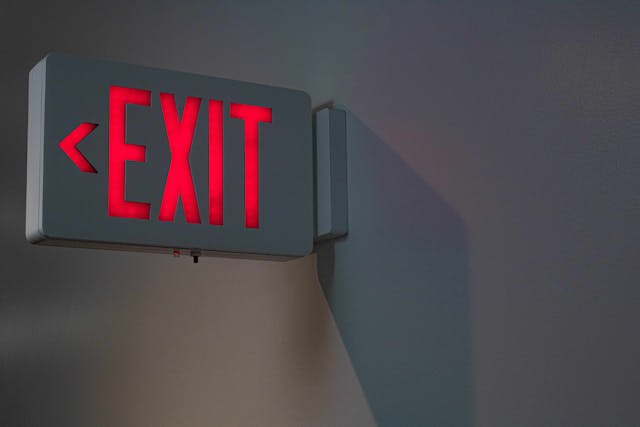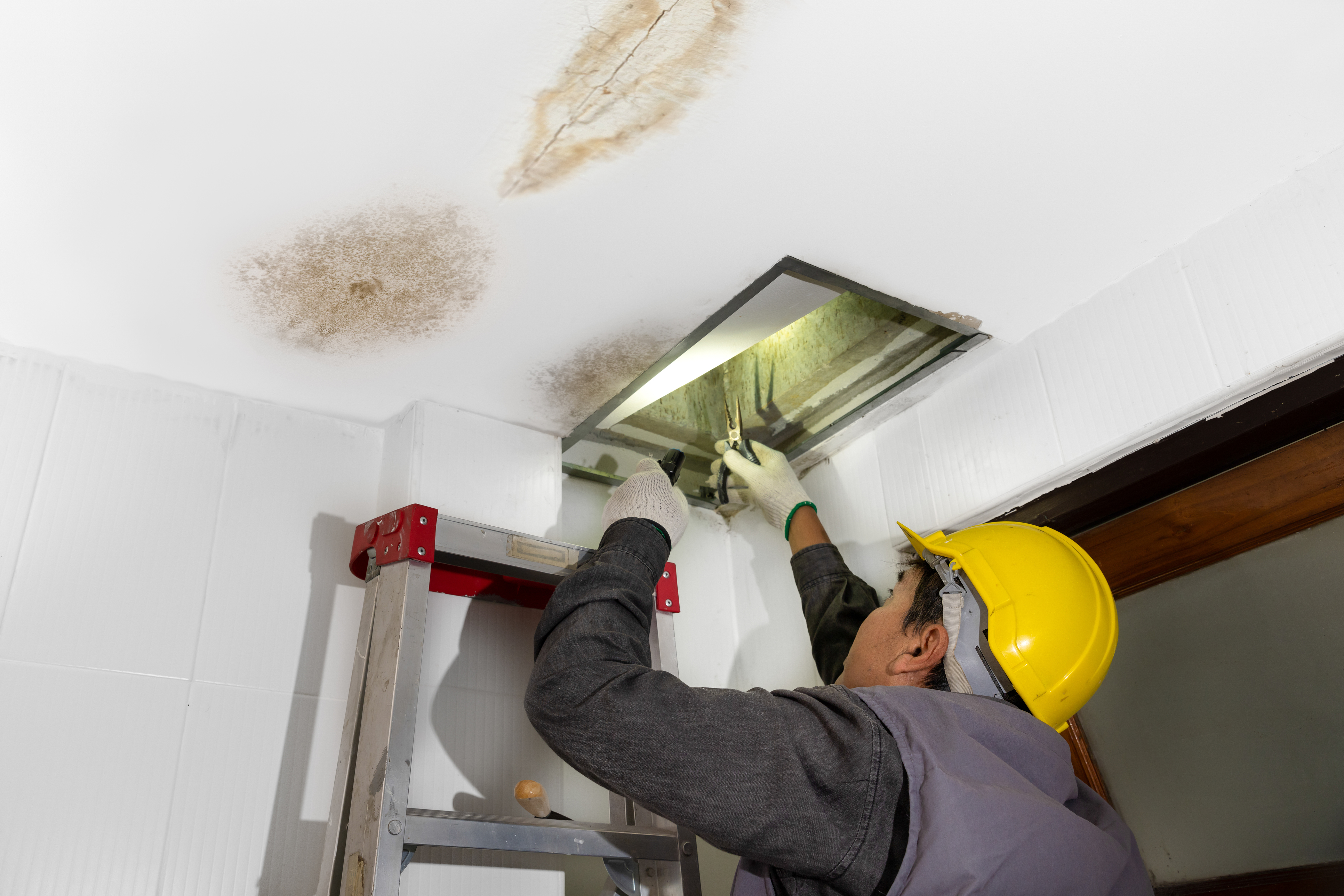_1.jpg)
Key Takeaways
- Meet Safety Codes First: Virginia landlords must ensure rentals comply with basic safety standards, including heat, water, smoke detectors, proper wiring, and secure fire exits.
- Address Health Hazards: Units must be habitable and free from mold, pests, asbestos risks, and disclosed lead-based paint if built before 1978.
- Prioritize Fire Safety: Provide working smoke detectors, accessible fire extinguishers, and clear escape routes to reduce risks.
- Stay Proactive: Regular inspections and preventive maintenance help keep properties compliant and residents safe.
Before you can rent out your property to tenants, you must ensure it meets the minimum safety standards. That’s why carrying out a thorough rental inspection before a resident moves in is key. A proper rental inspection will reveal any underlying issues the property may have. Such as pest infestations, foundation issues, mold growth, plumbing issues, and appliance malfunctions.
As a landlord, you have a legal responsibility to rent out a habitable rental unit that is safe for occupation. Beyond being a legal responsibility, it’s also a moral obligation to your residents to ensure they are comfortable and cared for. In this blog by Key Home Sales & Management, you’ll learn expert tips on how to know if your rental meets safety standards.
Learn More About Partnering With Us!
Safety Codes
Before renting out your property, check to see that it meets the basic safety codes. These are usually outlined under both federal and state laws. They cover many aspects of a rental property, including structural integrity, sanitation, and things like water, heating, electricity, and other essential services.
In the state of Virginia, specifically, the following are some of the amenities landlords must provide residents with.
- Heating during the cold seasons.
- Hot and cold running water.
- Sufficient garbage containers.
- Working smoke detectors.
- Proper electrical wiring, outlets, and a safe, working main switchboard.
- Clear and unobstructed fire escape routes.
- Working locks for doors and windows.
- You should also check for any additional requirements at your local municipality.

Fire Safety Standards
In 2023, there were an estimated 352,000 residential structure fires in the US. These were responsible for over $11 billion in property damage, over 10,400 injuries, and nearly 2,900 civilian deaths, according to the National Fire Protection Association (NFPA). What’s more, data shows that a lack of working smoke alarms is a major factor in many fire deaths that occur in homes. That’s why landlords have a duty to meet fire safety standards before renting out their units.
Ensure that every bedroom has a working smoke detector. You can test that it’s working by pressing and holding the test button on the detector until the alarm sounds. A loud, high-pitched alarm indicates that it is working. If renting out an apartment, you must also ensure there is a smoke detector on every floor of the building.
Aside from providing working smoke detectors, also ensure there are fire extinguishers in easily accessible locations, and ensure every unit has an easy fire escape route. This can include having emergency escape routes in every bedroom.
Meet Our Team!
Health Codes
1. Habitability Codes
In Virginia, landlords are legally obligated to provide tenants with a rental unit that meets the “fit and habitable” standard under the Virginia Residential Landlord and Tenant Act (VRLTA). This includes:
- Mold: If visible signs of mold are present at move-in, the landlord must disclose it in writing. Tenants can choose not to move in until the issue is remediated. During the tenancy, landlords are responsible for addressing mold growth that arises from building conditions (such as leaks or poor ventilation).
- Pests: Landlords must deliver the rental unit free of rodents or insect infestations. They are also responsible for regular extermination in multi-family dwellings. Tenants, however, are expected to maintain reasonable cleanliness to prevent infestations.

2. Federal Lead-Based Paint Requirements
Federal law applies to housing built before 1978. Landlords must:
- Disclose the presence of known lead-based paint or lead-based paint hazards.
- Provide tenants with the EPA-approved pamphlet “Protect Your Family from Lead in Your Home.”
- Include a lead disclosure form with the lease agreement, signed by both landlord and tenant.
Failure to comply can result in fines and legal liability if tenants suffer health problems.
3. Asbestos Regulations
Asbestos isn’t regulated in the same way as lead paint, but federal and state safety rules apply. In Virginia, landlords must:
- Disclose the known presence of asbestos-containing materials if they pose a health risk (for example, if they are damaged or friable).
- Ensure that asbestos materials in the property remain undisturbed and in good condition.
- Hire only licensed asbestos professionals if removal or abatement is required.
Reach Out Today!
Tenant Safety Education
In addition to providing a unit that meets the basic safety and health codes, you should also educate the resident on how to maintain the safety standards in the unit. You can do that by providing them with guidelines on how to safely use certain features. For instance, how to properly use gas appliances and fireplaces.
Landlords may also want to provide the resident with instructions on how to handle various emergencies. For instance, to immediately evacuate from the property in case of a fire outbreak and call the fire department.

Preventive Maintenance Plan
Prevention is better than cure, right? This is especially true when it comes to rental properties. Don’t wait for issues to crop up in order to act. Because, if you do, the repercussions can be dire. At worst, the unit may even be uninhabitable for occupation, leading to lost rent.
As a savvy landlord, always implement a preventative maintenance plan. Regularly inspect the unit for issues like pests, mold, leaks, and structural damage. Also, ensure that all systems and appliances are in working order.
Property Management FAQ's
Bottom Line
As a landlord, meeting your rental safety standards isn’t a one-day event. It’s a continuous process that requires you to be diligent and proactive. Your goal should be to ensure that the property is always compliant with all safety codes. To do that, you’ll need to stay on top of issues and maintain an open communication with residents.
What’s more, residents who feel comfortable and cared for are more likely to renew their lease multiple times and stay for the long term, offering landlords an optimal ROI.
Key Home Sales & Management is a full-service property management company that can help you minimize stress and maximize your ROI. We specialize in managing townhomes, condos, single-family units, and even commercial units. Get in touch to learn more!






